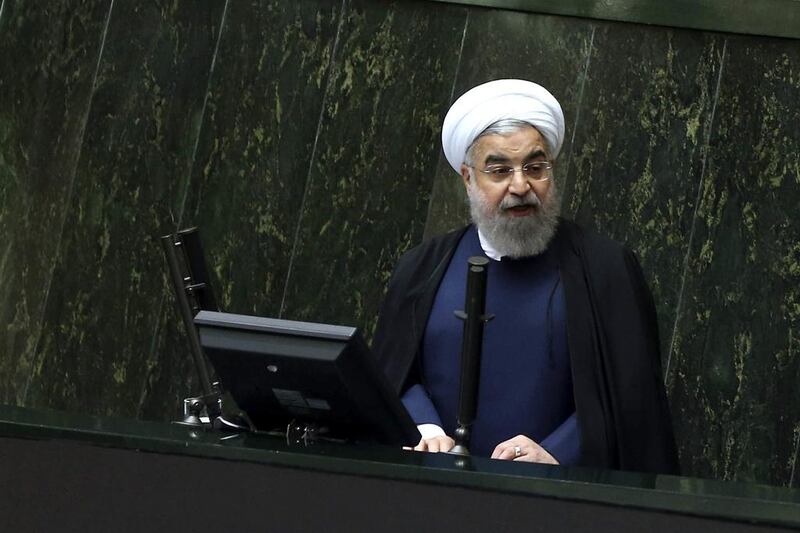Opec has agreed to its first official cut in oil production since 2008. This agreement was forged despite significant political obstacles among several members including Iran, Saudi Arabia and Russia. Crucial compromises had to be made.
But it is questionable whether the agreement will address low prices in the long-term. The deal is meant to cut production, not oil exports. Furthermore, implementing the deal and monitoring the parties involved is going to be a challenging task.
The accord is also a significant political victory for Iran, particularly the moderates, when it comes to foreign policy.
The domestic hardliners’ criticisms of Hassan Rouhani and Mohammad Javad Zarif’s foreign policy, their concessions to the West and their soft stance towards other nations have been mounting.
As the Iranian presidential election approaches, the moderates can claim this deal is a political and economic victory.
The moderates can also make the case to Ali Khamenei, the supreme leader, that they stood their ground and paved the way for more revenues to pour into the Islamic republic.
Increasing revenues assists Tehran in achieving its regional ambitions. Iran has risen to become the third largest producer of oil in Opec.
Iran also needs the additional dollars to continue supporting its staunchest ally in the region, Bashar Al Assad, and the Shiite militias in Syria. Tehran is spending billions of dollars every year in military, advisory, intelligence, financial and credit lines to Mr Al Assad. In addition, Iran is involved in the Iraqi conflict, assists the Houthis, and other Shia proxies across the region.
In comparison with prior Opec gatherings, Iranian officials kept a low profile at this meeting. Iran’s oil minister, Bijan Zanganeh, toned down his rhetoric and did not boast about scoring political points against regional rivals.
This can be seen as an effort to prevent the escalation of tensions and political posturing between Saudi Arabia and Iran.
From the moderates’ perspective, heightened tensions between Iran and Saudi Arabia empowers the hardliners. Increasing tensions buttresses the arguments offered by the Revolutionary Guard generals that they need an increased budget to safeguard Iran’s national interests and provide security against regional rivals. In addition, the moderates were aware that the media would hail any deal.
Press TV – Tehran’s English-language news network – focused mostly on the fact that the deal allowed Iran to increase production.
Arman-e Emrooz newspaper called the deal a “triumph of Iran’s oil diplomacy” and critical to reviving Tehran’s position in the global oil market. “This was the biggest achievement of the 171st ministerial meeting of Opec for Iran and a result of the powerful diplomacy,” it added.
“Throughout the years that Iran was under the sanctions, most of Iran’s share of oil markets was seized by Saudi Arabia ... If any attempt should be taken to remove the oil market glut, it is Riyadh that needs to reduce its production instead of raising the oil freeze plan to portray Iran as responsible for the falling oil prices.”
Another newspaper, Hamshahri, called the deal historic: “Only two days before the meeting, the Saudi energy minister had warned that he would leave the negotiations and said he would not see Iran exempted from the output freeze plan.
“But he said just before the meeting that he has no objections to Iran’s plans to increase its production ... This showed that the only opponent to exempting Iran from the oil freeze plan had accepted Iran’s conditions, which eventually paved the way for the big oil agreement.”
The politicisation of oil exports is deeply rooted in Iran’s foreign policy. Tehran was cognisant of the fact that reducing its oil output could be a political victory for Riyadh. Iranian officials also felt that Saudi Arabia needed a deal more than Iran. Tehran also believes in its right to increase its oil production after the nuclear deal.
While Iran is celebrating its “historic” deal, Opec may still need to cut oil production further to adequately tackle low oil prices.
Dr Majid Rafizadeh is an Iranian-American political scientist, Harvard University scholar and president of the International American Council





